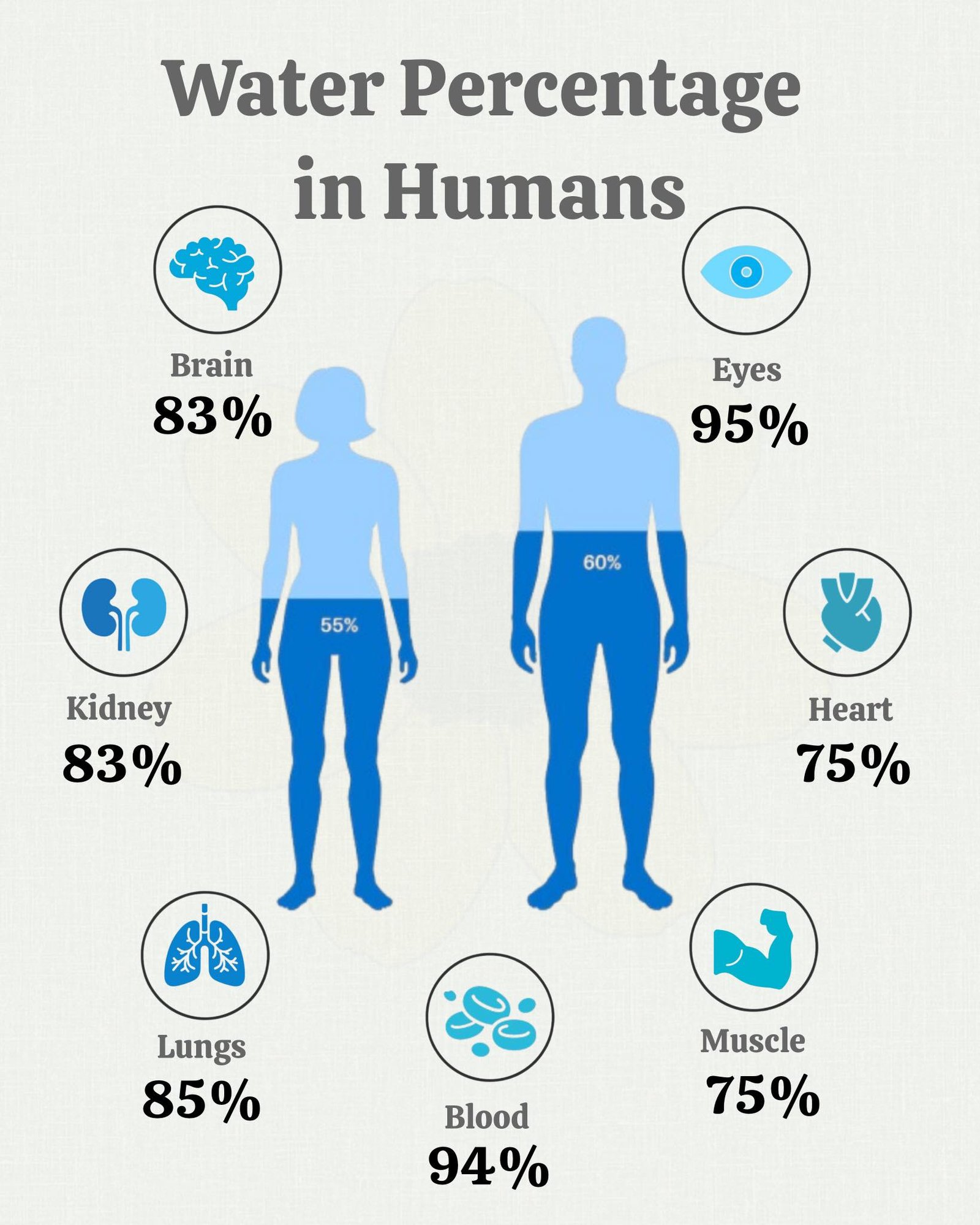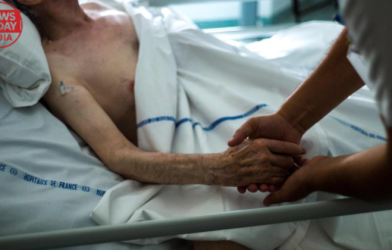Subtotal $0.00
Water is very important for our bodies. It helps us stay healthy and keeps everything working well. Our body has a lot of water, and different parts of the body have different amounts of water. Let’s look at how much water is in each part of the human body in a very simple way.
How Much Water Is in Our Body?
On average, about 60% of the human body is made of water. That means more than half of your body is water! But this percentage changes depending on the part of the body. Some parts have more water, and some have less. Let’s break it down.
Water in Different Parts of the Body
- Eyes: The eyes have the most water—95%! That’s almost all water. This helps the eyes stay soft and clear so we can see well.
- Blood: Blood has 94% water. Blood moves around the body to carry oxygen and food to all parts. Water helps blood flow easily.
- Lungs: The lungs have 85% water. Lungs help us breathe, and water keeps them moist so air can move in and out smoothly.
- Brain: The brain has 83% water. The brain helps us think, learn, and move. Water keeps the brain working properly.
- Kidneys: Kidneys also have 83% water. Kidneys clean the blood and remove waste from the body. Water helps them do this job well.
- Heart: The heart has 75% water. The heart pumps blood all over the body, and water helps it stay strong and healthy.
- Muscles: Muscles have 75% water too. Muscles help us move, lift things, and play. Water keeps muscles flexible and strong.
- Whole Body: As we said, the whole body has about 60% water on average. This includes all the parts together.
- Bones: Bones have the least water, about 55%. Bones are hard and strong to support the body, but they still need some water to stay healthy.
Why Is Water So Important?
Water does many jobs in the body. It helps carry food and oxygen to all parts. It keeps our body cool when we sweat. Water also helps remove waste through urine and sweat. Without enough water, our body cannot work properly. For example, if the brain doesn’t have enough water, we might feel dizzy or tired. If the kidneys don’t have enough water, they can’t clean the blood well.
How to Keep Your Body Hydrated
To make sure your body has enough water, you need to drink water every day. Here are some easy tips:
- Drink 8–10 glasses of water daily. If you play sports or it’s hot outside, drink more.
- Eat foods with water, like fruits (watermelon, oranges) and vegetables (cucumber, lettuce).
- If you feel thirsty, don’t wait—drink water right away.
- Carry a water bottle with you so you can sip water anytime.
What Happens If You Don’t Drink Enough Water?
If you don’t drink enough water, your body can have problems. You might feel tired, have a headache, or feel dizzy. Your skin might become dry, and you might not be able to focus. In serious cases, not having enough water can make you very sick. So, always drink enough water to stay healthy.
Fun Facts About Water in the Body
- Babies have more water in their bodies than adults—about 75%! As we grow older, the amount of water in our body decreases.
- Men usually have a little more water in their bodies than women because men often have more muscle, and muscles hold a lot of water.
- If you’re sick and have a fever, your body loses more water, so you need to drink even more to feel better.
Conclusion
Water is a big part of our body, and every part needs it to work well. From the eyes to the bones, water keeps us alive and healthy. By drinking enough water and eating watery foods, you can take care of your body and feel great every day. So, grab a glass of water now and keep your body happy!












